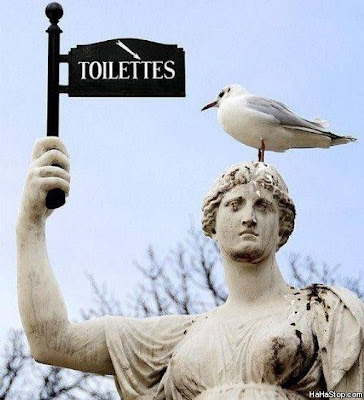
Climate change is a reality, despite the skeptics who maintain that it is all a figment of the imagination, and, like an irritating itch, it will pass with time.
Forget about trying to prove or quantify whether it is a reality or not. Al Gore and his Inconvenient Truth road show is evidence enough for anyone who has an object on top of his spinal cord that is larger than a golf ball.
The issue is what can, and will be done about it?
The answer is easy. Absolutely nothing of significance.
Bit of lip service here, an annual conference there, and throw in a couple of demonstrations, by mostly environmentally privileged people, both here and there.
Anybody who wants to enter into a discussion about climate change and how to handle it must by default have an understanding of Thomas Malthus’ theory regarding population and resources. One of the Classical Economists (late 1700’s), he believed that there is a balance between population levels and their pressure on resources and “nature”. He believed that if population levels were not kept in control, and in balance with the environment, nature would do it for mankind in a cruel and savage manner.
Now, his theory has been, and still is, discounted by many, as this was applicable to circumstances long ago. Before the use of fertilizers, fossil fuel and the Industrial Revolution. These factors allowed more people to live per Unit of Mother Nature’s Resources. (Just thought that definition out, I like it)
According to some sources, 10 percent of all people born on earth are alive today. Scary stuff once more.
This is true, but the Production Revolution has created its own monster in the depletion of resources and contamination of the atmosphere.
Economic growth is a concept aggressively pursued by countries, companies and individuals. This is the way of modern life. Those who have, want more and better, and those who don’t have, also want to have more and better. That is the greater order of things. This comes at the price of resource depletion, atmospheric pollution and climate change, and in the long term, the demise of the human race. Hail The Economic Growth Theory!!!
So, theoretically, the whole doomsday scenario can be avoided if the global economy adopts a negative growth policy. Fifty years ago this was foreseen, and the corrective projections were: -
- 75% reduction in natural resource utilization
- 50% reduction in pollution generation
- 40% reduction in investment
- 30% reduction in birth rate.
Scary stuff. No ways any one country will adopt this kind of strategy.
So, what will happen is there will be a lot of talk about alternative energy, carbon footprints and walking to the 711 on a Sunday morning instead of using the 4X4.
Unless there is a paradigm shift in the way mankind thinks, or a quantum leap in fossil fuel replacement with lower utilization of natural resources in the chase after production goods, mankind’s evolutionary progress will be replaced by an era of devolution. Everything manufactured by man, will in time, be reclaimed by nature. That is a fact. A thousand years after man, there will be virtually no evidence the he was ever here, so says DSTV.
The current global turmoil will fade into insignificance when low lying countries and cities start flooding and crops fail worldwide. When individuals start fighting amongst themselves to ensure their basic needs. Back to the Neanderthal man concept.
Einstein said..” I know not what weapons will be used in World War 3, but World War 4 will be fought with sticks and stones”
We are prodding Mother Nature with a very sharp stick, and her revenge will be swift and brutal
One of the countless definitions (mostly derogatory) of a cynic is:-
“… one who sees what's going on, knows that others see what's going on and maddeningly knows that nothing will ever be done about it.”
That is why I am a die-hard cynic
Image source ; Unknown
Go to home page and read some more stuff...

























































